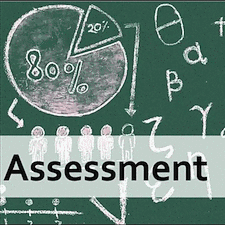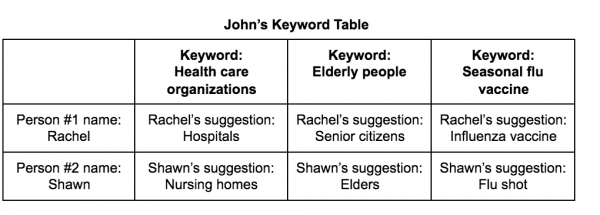 By Raymond Pun and Katelyn Angell
By Raymond Pun and Katelyn Angell
FYE librarians need to continue shaping their instructional and assessment methods for first year students as a way of measuring students’ learning and your own instruction performance. In a previous post, we covered different assessment activities that you can adapt in your instruction program—here are some more options for you to consider!
- Collaborations with Faculty Outside of the Library: As a subject-specialist librarian teaching primarily within the one-shot format, it can be tricky to evaluate instructional effectiveness. Partnering with faculty to co-create an assessment tool, such as a rubric measuring key information literacy competencies of a particular discipline, is a viable option. Rubrics can be tailored to evaluate the knowledge and skills of students brand new to a field of study (such as first years) or extended up to the graduate level. Having librarians and subject faculty assess student artifacts (e.g. research papers) can yield rich information, which can then be applied in both the classroom and the library to improve specialized information literacy skills.
- Fun Surveys with BuzzFeed: Popular social media news site BuzzFeed has a special feature called Community Post where anyone can create an account and blog or design a BuzzFeed survey. These surveys can be fun, quirky, and intentional. Survey students on topics like, “What kind of a reader are you?” “What’s your favorite study space?” or “What should be your major?” Collect the data and have a small discussion about it. It can be a fun alternative to Qualtrics/Survey Monkey for student engagement, allowing students to share their experiences and thoughts on their first year.
- Real-Time Assessment with Google Sheets: Thinking about assessing students in real-time classroom setting? Consider using Google Sheets, an open source tool under Google Drive that can engage with many students at once. You can set up a Google Sheet and allow students to fill out each box on their research topics, search terms, results, keywords, etc. Then engage with them as they conduct their searches. This is an effective way to manage a one-shot with over 50 students so you can easily browse through the Google Sheet to see who is behind, who is ahead, and who using the wrong keywords for their research topics. This can be corrected immediately and everyone else can learn from these teachable moments.
- Collaborative Keyword Development Activity: This activity has two goals: helping students work together to improve keyword development skills and providing librarians with an idea of first years’ basic search capabilities. Divide students into groups of 2-3 and instruct them to help their teammates think of keywords for each of their research topics. Students are provided with a table to complete (see below) for each group member. They gain practice by generating synonyms in a team-based environment, and librarians can evaluate keyword skills of first year students to better inform their teaching practice.
John’s research question: Should healthcare organizations serving senior citizens require employees to receive the seasonal flu vaccine?
Katelyn Angell is First Year Success Librarian/Assistant Professor at Long Island University, Brooklyn Campus. She has published several articles on assessment of information literacy skills, including “Far From a Trivial Pursuit: Assessing the Effectiveness of Games in Information Literacy” in EBLIP with Eamon Tewell.


